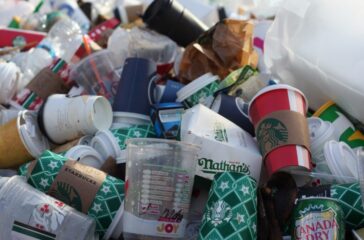Single-use plastic waste is at record levels, with hefty climate toll, report warns
By Dana Drugmand
From grocery store bags and soda bottles to take-out containers and food packaging, single-use, disposable plastic is a pervasive problem that presents not just waste management problems, but considerable harmful climate impacts as well, according to a new report.
 EWG
EWG